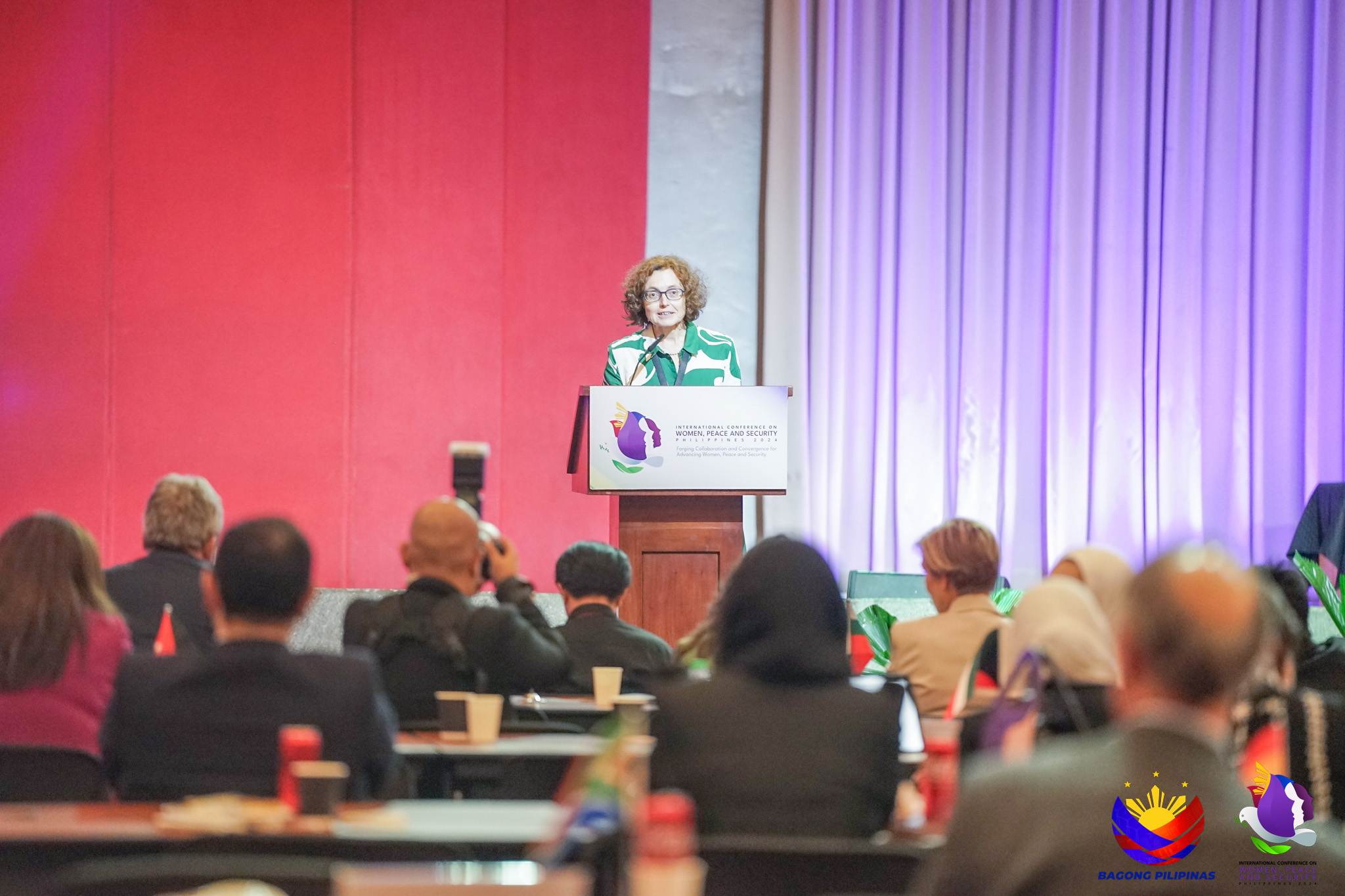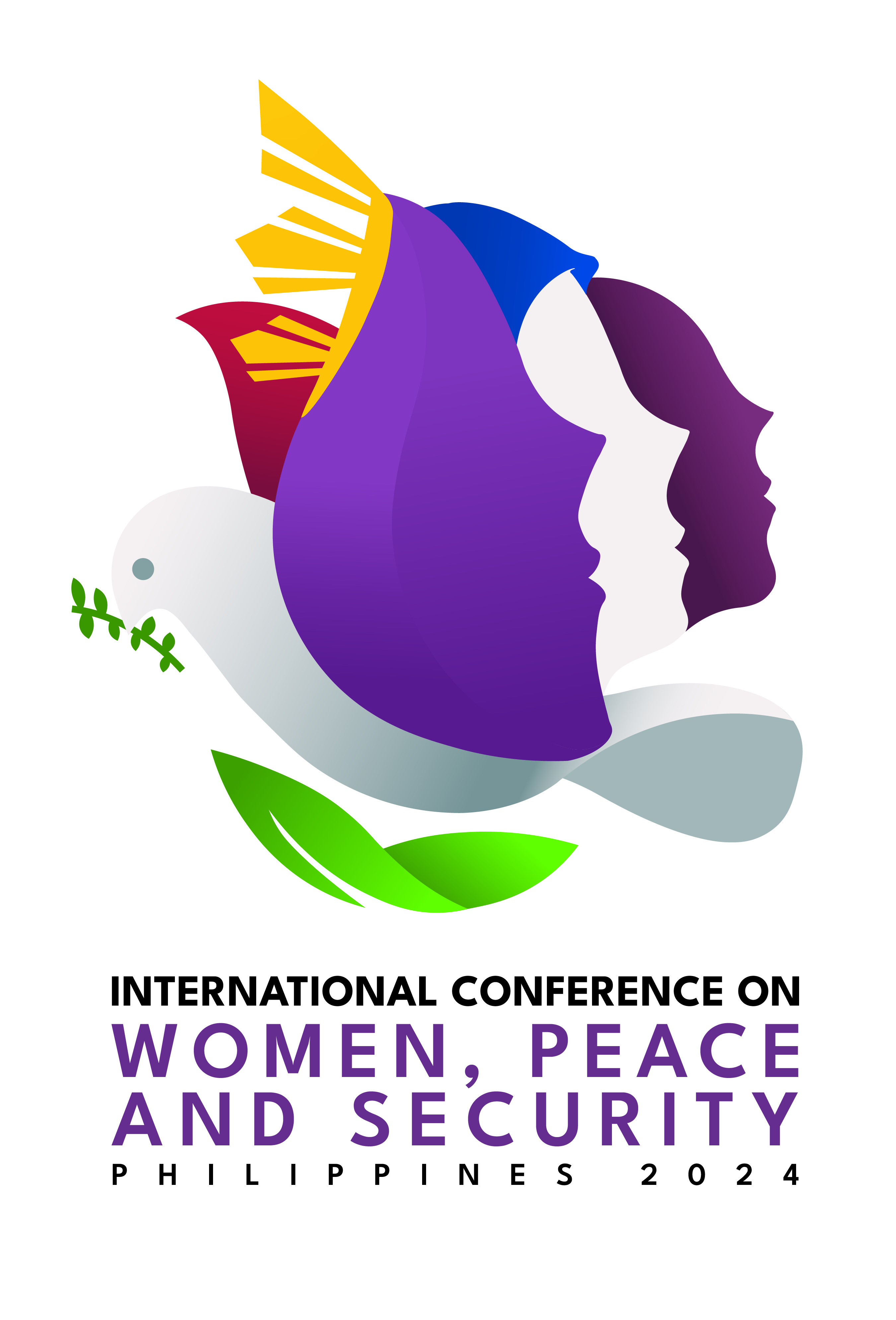Over 80 countries, international and civil organizations on ICWPS general discussions

PICC, Pasay City — Statements issued by United Nation (UN)-member countries, international and civil society organizations on Monday, October 28, highlighted both the challenges and opportunities in advancing women’s role in peacebuilding and security.
The session featuring the testimonies of world ministerial leaders was among the highlights of the first day of the International Conference on Women, Peace and Security (ICWPS) held on Monday, October 28, in this city.
With the theme, “Forging Collaboration and Convergence for Advancing Women, Peace and Security,” ICWPS is the first ministerial-level conference hosted by the Philippines that aims to highlight the power of inter-regional networks in exchanging experiences, best practices and challenges confronting women leaders and peacemakers across the globe.
The conduct of the ICWPS is in commemoration of the 25th anniversary of the landmark UN Security Council Resolution (UNSCR) 1325 on Women, Peace and Security.
Adopted on October 31, 2000, UNSCR 1325 is a landmark resolution that addresses the disproportionate impact of armed conflict on women, while emphasizing their vital role in fostering peace, conflict resolution, and post-conflict reconstruction.
Implementation of WPS agenda
“The Philippines commits to further strengthen the implementation of the policy instruments on UNSCR 1325 and all international instruments on Women, Peace and Security, women’s empowerment and climate action,” said Philippine Commission on Women (PCW) Chairperson Ermelita V. Valdeavilla.
“We recognize that the synergistic implementation of these instruments will accelerate our vision of an inclusive gender responsive, climate resilience and enduring peace that leaves no one behind,” she explained.
“Our challenges are enormous and without borders, so let our partnership, friendship, unity and commitment to humanity be the very frontier of our international solidarity,” Valdeavilla added.
Bulgaria’s Deputy Foreign Minister Her Excellency Navyana Miteva emphasized her country’s steadfast commitment to help push forward the WPS agenda.
“Our vision is that partnership, whether through the European Union, UN Women, or other international frameworks, are [the] key to strengthening the women, peace and security agenda globally, by aligning our actions with those of the international community, we ensure that our collective efforts are impactful and sustainable,” she noted.
Miteva called on the delegates “to forge strong and lasting partnerships and converge our efforts for a common goal, a future where women’s role is fully recognized.
According to Hungarian Ambassador Titanilla Toth, Hungary has the most number of female active duty soldiers among North Atlantic Treaty Organization (NATO) countries, with a significant participation in international operations.
“The advancement of women, peace and security is a key human rights priority of the Hungarian EU presidency, supported by the development and implementation of the Hungarian national action plan by bringing the Women, Peace and Security agenda to the forefront,” she explained.
“Hungary aims to enhance the role of women in [the] international security policy process and reaffirm its dedication to global peace building, particularly in conflict affected areas,” she added.
For Ambassador of Thailand to the Philippines His Excellency Tull Traisorat, his nation is among the countries that are fully committed to increasing the number of female peacekeepers and experts in public service, as their presence helps build trust and confidence in communities.
“As such, Thailand stands firm in our commitment to contributing more female peacekeepers and experts to the work of the United Nations’ peacekeeping,” said Traisorat.
“We believe that peace and sustainable development can be achieved only through the realization of diversity, equality and inclusion, therefore we must continue to do our utmost to push forward WPS agenda for the benefit of all,” he pointed out.
Mexico, for its part, recognizes the critical role of women in preventing and resolving armed conflicts.
This can be done by “maintaining peace and contributing to post-conflict reconstruction and humanitarian efforts,” according to Mexican Ambassador Daniel Hernandez Joseph.
Joseph also emphasized the importance of implementing inter-generational approaches and linking the WPS agenda with the Youth, Peace and Security agenda.
Women as peace builders
“We believe that peace and sustainable development are only possible when women and girls are not only protected but in power to lead,” stated UNFPA Philippines Representative Dr. Leila Joudane.
“We recognize that [the] equal and meaningful women participation in peace building and social development is one of the essential ingredients to sustainably counter organized crimes, drugs, terrorism, corruption and gender-based violence,” said UN Office of Drugs and Crime Programme Coordination Fellow Sara Montagnin.
According to the President of the Philippine Center for Islam and Democracy (PCID) Amina Rasul-Bernardo, “Women have emerged as powerful peace builders.”
Rasul urged “the governments, international organizations to help in establishing the bridges linking civil society and women leaders across regions.”

